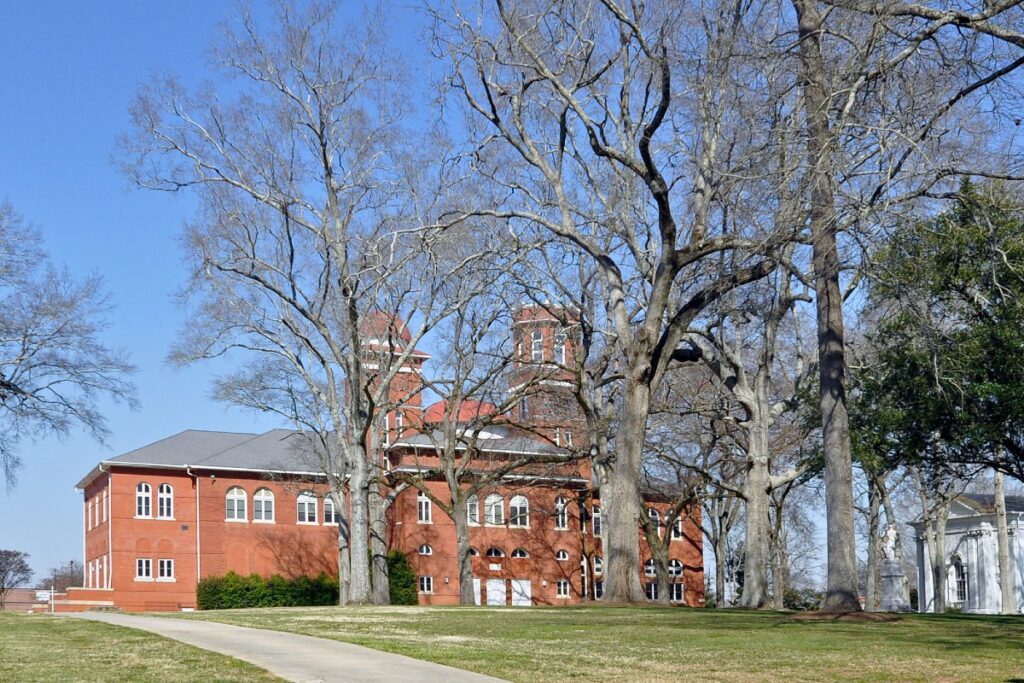
Critics of South Carolina’s charter school law say two bombshell lawsuits in rural Anderson County shine a light on the law’s principal deficiency — a charter school oversight system that lacks meaningful accountability for student outcomes.
For years, studies have found that S.C. charter schools consistently fail to live up to their promise of academic excellence in a publicly-financed setting, despite a number of high-performing charters like Meeting Street Academy-Spartanburg and Orange Grove Charter School in Charleston.
Most recently, Stanford’s Center for Research on Education Outcomes (CREDO), which has been studying charter schools since 2009, reported in 2023 that Palmetto State charter school students underperform their public school peers in reading and math. This finding placed charter schools in South Carolina, which proponents hail as a model for charters, near the bottom nationally. S.C. is one of only three states where charter students aren’t overperforming on academics.
‘Authorizer shopping’ and a lack of accountability
When South Carolina passed its charter school law in 1996, the basic concept was popular among education reformers and parents in both parties. For Democrats, it offered school choice within the existing public school system. For Republicans, it promised independently-governed schools where parents and principals, not state-level education bureaucrats, would call the shots. And for parents, it provided the promise of excellence from a system that had ranked among the nation’s worst for generations.
The key, everyone agreed, would be accountability. Successful charters would be allowed to grow and prosper; failing charters would be shut down when they failed to deliver results.
To that end, South Carolina’s law required charter schools to be sponsored by the state-run S.C. Public Charter School District or an institution of higher learning. These sponsors, or authorizers, would be responsible for holding their charter schools to high standards – and closing their doors if they failed to meet them.
But in the years since, only two colleges, both private, have chosen to become authorizers: Erskine College and Limestone University. And in a number of instances, failing charters have been allowed to move from one authorizer to another to avoid closure – a process of “authorizer shopping” that critics say stems from loopholes in the law and the profits sponsors reap from the schools they regulate.
Dueling lawsuits
Two closely-watched lawsuits in Anderson County demonstrate the fraught, and allegedly incestuous, relationships that can develop between authorizers and their schools.
In the first suit, filed May 9, Erskine College claims that Icelaven Development Group – which operated three high-performing, Erskine-sponsored charter schools under the Reason & Republic brand – is in default on a 2021 loan of $1 million from the college.
But in a July 18 countersuit, Icelaven and its primary owner, James Galyean, tell a very different story.
According to Galyean, the $1 million wasn’t a loan at all. Instead, it was a direct investment in Icelaven for which Erskine received a 10% ownership stake in the company. It was only later, he claims, when Erskine wanted to unwind the deal, that Icelaven agreed to convert it into a loan.
Moreover, he alleges, Erskine charter school officials have waged a calculated campaign of “misinformation” and “threats” to destroy Icelaven in a bid to bring its schools into the Erskine officials’ recently-formed charter-school management company, Teach Right, USA – a move that Galyean suggests would allow Erskine officials to profit from sponsorship and professional services at the schools it oversees.
Asked for comment, Erskine spokesperson Brianne Holmes says the college looks forward to its day in court.
“Erskine College cannot comment in detail regarding ongoing litigation,” Holmes told Statehouse Report in a statement. “The college is proud to be involved in the state’s efforts to develop high-quality public charter schools and will vigorously defend our institution against this lawsuit.”
Calls for reform

Sherry East is president of the South Carolina Education Association, which represents teachers (including charter school teachers) across the state. She tells Statehouse Report that she supports charter schools, but believes the law is in need of major reform – particularly in terms of authorizers and accountability.
“When a charter school fails, [the authorizer] needs to shut it down,” East said. “We need to stop authorizer shopping and make sure the children are being served properly.”
In addition, she says, the legislature should consider restricting authorizer duties to state colleges and universities.
“How can a private college be an authorizer of public schools?” she asked. “We were all just asleep when that happened, I guess.”
Also on her proposed to-do list for legislators: improved transparency, stricter oversight of for-profit management companies and limits on charter-related lobbying by authorizers and management companies.
Finally, she’d like the legislature to deliver on the promise of real competition by granting traditional public schools some of the same flexibility that charter schools currently enjoy, especially regarding discipline.
“Really, we just want an equal playing field,” East said
- Have a comment? Send to: feedback@statehousereport.com.


